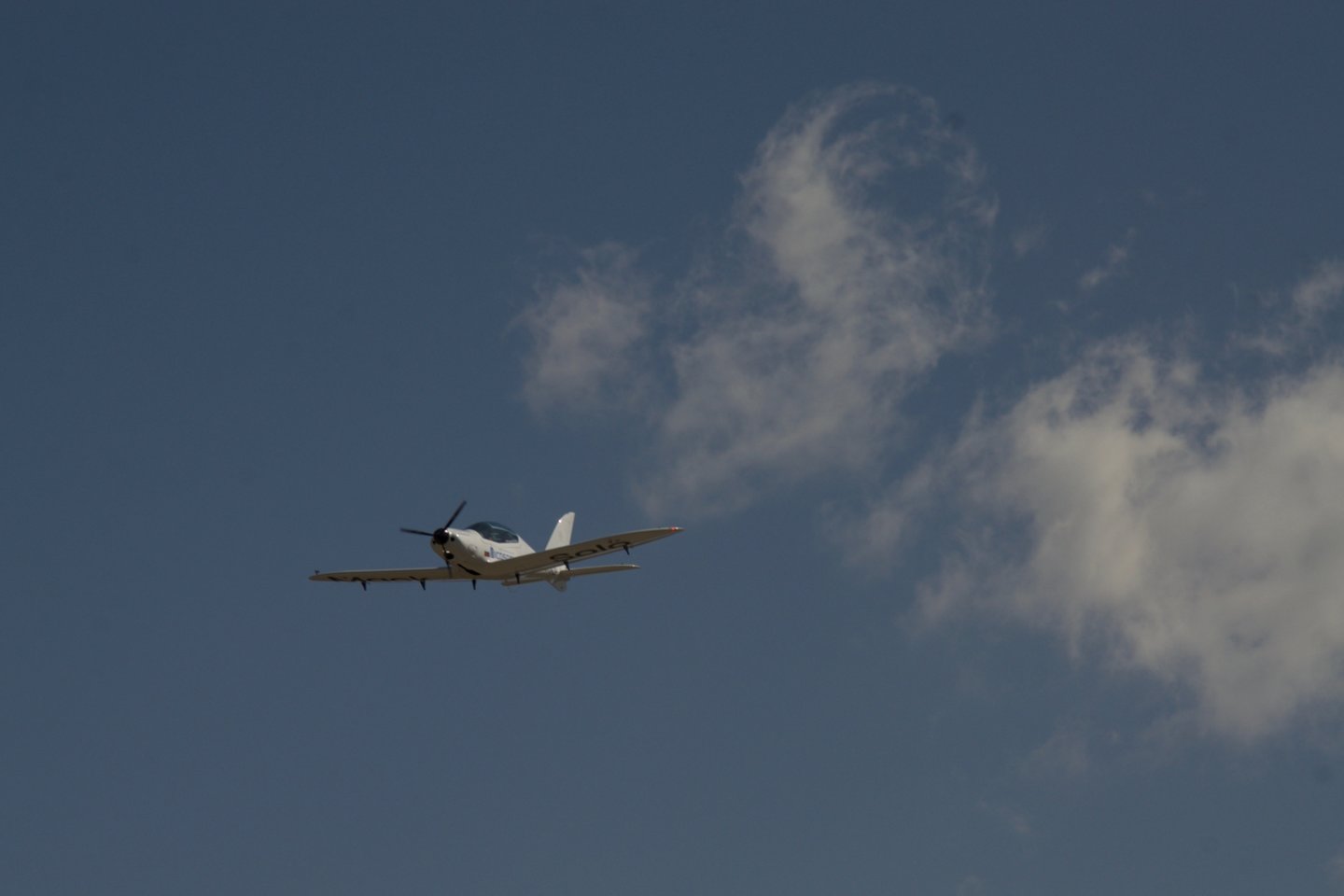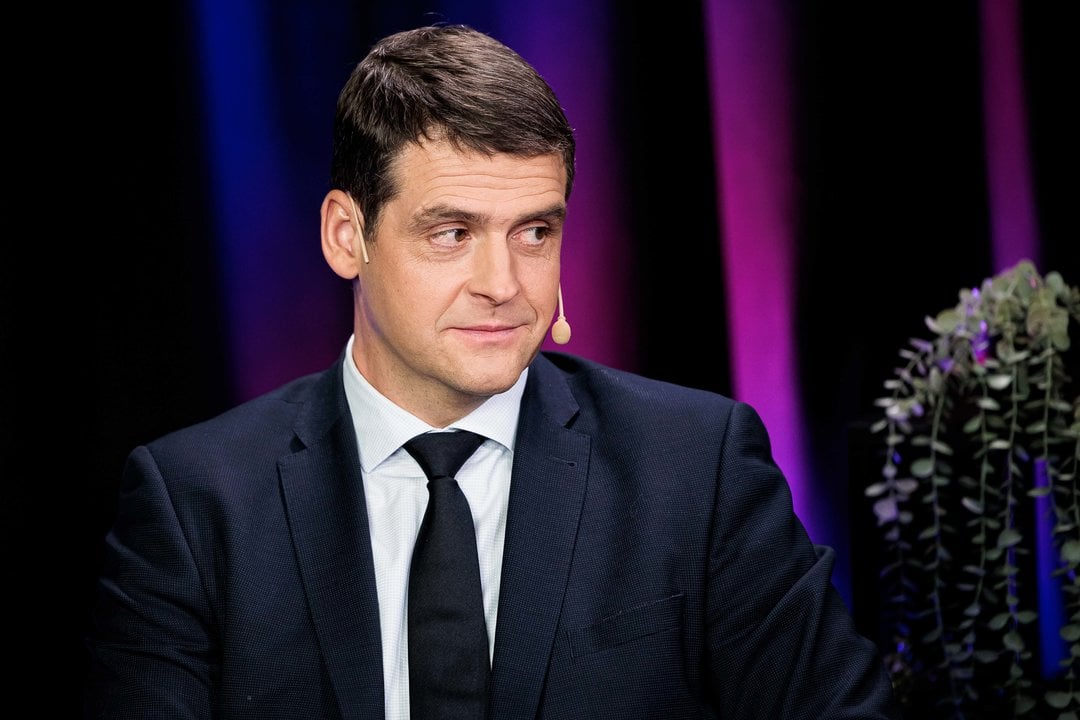Bulgaria reported last Thursday evening that a two-seater plane taking off from Lithuania had flown over several Eastern European countries without permission, attracting the attention of the air force, and was then abandoned in Bulgaria by an unknown crew. The twin-engine Beechcraft with two people did not have an approved flight plan, and its transponders were disabled. The pilot did not respond to radio requests and visual signals.
Regulatory problems
On Wednesday, after a meeting of the NSGC committee, its chairman, conservative Laurynas Kasčiūnas, said that according to the European regulation, there is a grey area of airspace in Lithuania, which is basically unmanageable.
„Certain legal regulations that are currently in place in our country in relation to the European regulations create a grey area where such flights can be carried out, which may one day become a provocation or have consequences. Especially when we are a frontline state, and there is a war going on nearby“, Kasčiūnas stressed.
According to him, Lithuania's airspace has a so-called G zone – a zone of up to three kilometres outside the country's strategic facilities and major cities.
„This plane, from a formal point of view, having taken off and flown in that G uncontrolled airspace zone, basically did not have to submit a flight plan. The transponder could have been switched off, and it could not even have used radio communication. According to the European regulations, this is not a violation for this minute,“ Kasčiūnas pointed out.
The conservative argued that such a regulation „is designed for some luxury-living Western European citizens who like to fly on weekends – naturally, why should we inform anyone here?“.
„Since we are a frontline state, the question arises whether this is adequate for our geopolitical situation and possible provocations,“ the MEP noted.
According to Kasčiūnas, Lithuania is planning to use its national decision to reduce uncontrolled airspace.
„When we reduce the uncontrolled airspace, we could introduce a clear algorithm in those uncontrolled remnants, which was in force until 2014 – a minimum application is filled in online or by a call to the air force that I, in an aircraft of this registration, am going to get out of here and I want to go here and there. Then the Air Force would be reassured that this is a registered flight,“ the MEP said.
Asked about the details of the international flight itself, Kasčiūnas said that he knew the story of the flight was a very spicy one.
„There are so many different juicy details that I want to leave it to the professional investigators to tell as much as they can tell. But the story is interesting. It is not like a military provocation but more like a criminal one. Not in the sense of security,“ Kasčiūnas said.
Data collection
Saulius Briginas, deputy chief of the Lithuanian Criminal Police, said that the circumstances of the incident were still being assessed and clarified.
„A decision will be made in the near future as to whether a formal pre-trial investigation will be launched or whether all the material will be handed over to the competent authorities for committing an administrative offence, i.e. violation of flight rules,“ Briginas said.
He said that the initial version put forward by Bulgaria – that the plane was stolen – had not been confirmed. According to the data gathered by the officials, the plane was sold, and the buyers of the plane were the ones who flew on the flight in question, according to the initial data.
The police are currently assessing two aspects: the legality of the flight and the legality of the transaction itself. It is too early to give reasons for the flight at this stage, he said.
„It is too early to say whether the fact that the aircraft could not fly at all and thus flew to the destination country to meet the prospective buyers will remain, or whether there will be something more, with criminal purposes,“ Briginas said.
Colonel Dainius Guzas, Commander of the Lithuanian Air Force, pointed out that officers spotted the flight immediately, starting from the Panevėžys Aero Club, and monitored the flight all the way to Poland.
Ramūnas Dilba, Chancellor of the Ministry of Transport and Communications, said that the flight was in order as long as the aircraft did not cross Lithuanian-Polish airspace.
„From the perspective of civil aviation, the flight was appropriate, except for the moment when it crossed Lithuanian-Polish airspace. Every international flight that crosses national air borders requires a flight plan. Such a plan was not coordinated. If it had not crossed but had turned around near Lazdijai and returned to Panevėžys, it could have been said to have been without any irregularities,“ said Mr Dilba.
Mysterious flight
Bulgaria said on Thursday that the aircraft, which took off from Lithuania, had entered the airspace of Poland, Slovakia, Hungary, Serbia, Romania and finally Bulgaria without permission.
The pilot did not respond to radio requests and visual signals. The unauthorised flight was escorted by fighter jets in Hungary and Romania before entering Bulgarian airspace.




